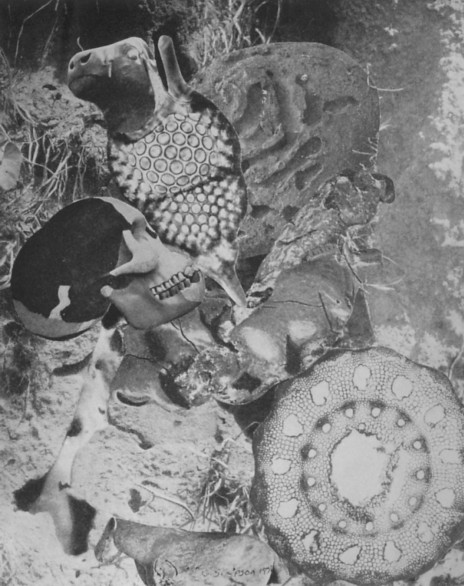|
|
In the Merida
Mountains of Venezuela, which arc in the northwest quadrant of the
country just
south of Lago de Maracaibo, there is a curious custom that its
ancient
indigenous peoples followed. It involves several rituals performed over
a dead
body. Seemingly, it did not matter whether that body were human,
animal, bird
or fish. Archeological evidence on that score is fairly complete. What
we don’t
know is just what happened and the sequence of each ritual.
Nonetheless,
putrefaction is key. As the dead creature
putrefies, so too do the four organic offerings that surround it, each
geometrically placed above, on each side and below; when vectored
forming a
diamond-like shape. Dog teeth, fingers, neck vertebrae, paws, sea
shells, seeds
woven into small circular mats and other brief constructions are used
in this
manner to complete the circuit. The shape of the diamond no doubt
qualifies the
putrefaction of the dead creature, both framing and isolating it from
the
surrounding area.
Musical values also enter into this custom. Archaeologists have found primitive pipes carved from animal bones near enough to the burial to counter more cautious appraisals of their purpose. Perhaps devotees played those pipes during the ritual and then left them as tribute, a final salute to the transformation of life and regeneration to death and putrefaction. Not long ago I was
invited to a performance of one of those pipes, which time and erosion
had not
appreciably damaged. A classical flautist had determined its range –
two octaves
– and, with embouchure, its note scale. Played in a concert hall, which
amplified the modest tone of the pipe, something that would not be
possible in
nature, unless played in a valley that supported echoes, an ancient
lyrical
music, simple and rich, enchanted me. Was this music a means
for the dead creature to pass into putrefaction or was it less
symbolic,
something done to end the ritual for those who practiced it? I suppose
I will
never know.
On my last trip to the
Merida Mountains to continue my research, not so much in ancient
customs and
rituals now as their survivals in culture today, my colleague – whom I
will not
name – gave me a pipe dating back three millennia. She told me that I
deserved
the memento and would, in time, learn to play it. She was right. I play
it when
pondering the putrefaction ritual, and why, given its recurrence in
this area,
it was so important over so long a period of time. The organic diamond
form
around the dead body resonating with faint, deliquescent vibrato....
|
|
